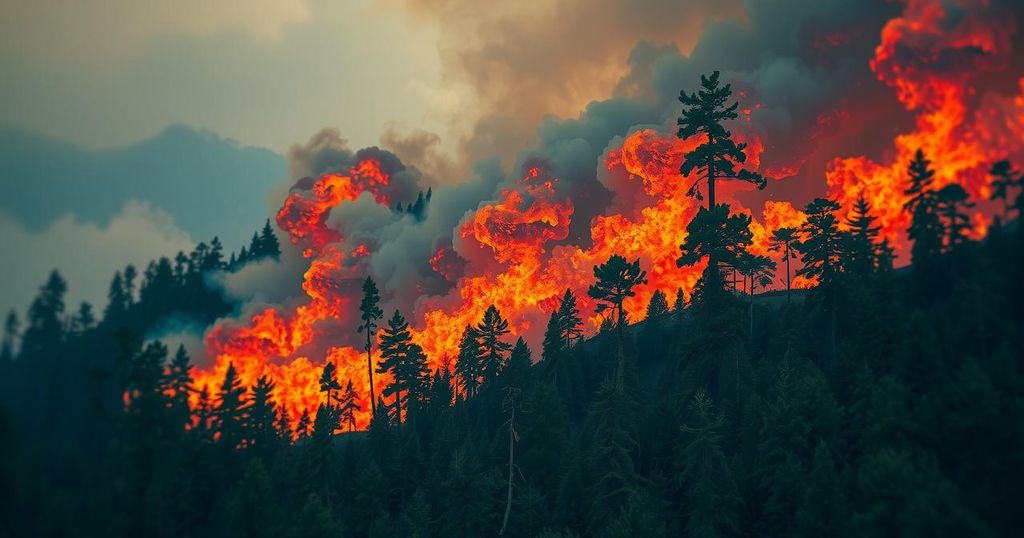Recent studies reveal that climate change exacerbates forest fires globally, increasing incidence and severity, which in turn contributes to significant public health risks due to heightened air pollution. Between 2003 and 2019, nearly 16% more forest area burned compared to a climate-neutral scenario. The resulting air pollution linked to these fires has led to a dramatic increase in health-related fatalities worldwide, with over 12,500 deaths per year attributed to climate change in the 2010s, a substantial rise from prior decades.
Climate change significantly intensifies the frequency and severity of forest fires, further exacerbating health issues associated with air pollution from these events. A recent study published in the journal Nature Climate Change, involving researchers from ETH Zurich, has revealed alarming trends in forest fire incidents. The research led by Seppe Lampe from the Free University of Brussels indicates that from 2003 to 2019, forested areas subjected to fires increased by nearly 16% compared to scenarios without climate change, notably impacting regions including Australia, South America, western North America, and Siberia. While total forest area burned has reduced by 19% due to extensive agricultural land use, the severity of wildfires in the remaining areas has amplified, attributed predominantly to warmer temperatures and prolonged drought conditions. Co-author Chantelle Burton from the UK Met Office emphasizes, “Our study shows that once fires occur, the impact of climate change becomes increasingly significant with drier and warmer weather conditions.” In a complementary study, led by Chae Yeon Park from the Japanese National Institute of Industrial and Science Technology, researchers explored the health ramifications of increased smoke and particulate matter from wildfires. Their findings indicate that global fire-related air pollution deaths surged from approximately 46,400 annually in the 1960s to about 98,750 in the 2010s. Furthermore, it is estimated that over 12,500 deaths per year in the 2010s can be directly linked to climate change-induced fires, a stark increase from around 670 annual deaths in the 1960s. Park notes, “Our research makes it clear that climate change increasingly poses a threat to public health, as smoke is also affecting densely populated areas more frequently.” Some regions, such as South Asia, have paradoxically seen a reduction in fire-related deaths due to increased humidity stemming from climate change; however, most areas worldwide experience significant health risks associated with wildfire smoke. The studies underscore the urgent need to address climate change as a critical public health threat.
The escalating issue of climate change has led to increased temperatures and prolonged droughts, which in turn heighten the conditions conducive to forest fires. This phenomenon not only devastates natural ecosystems but also poses significant health risks to populations exposed to the resulting air pollution. The scientific inquiry into these relationships has gained urgency as more regions around the globe experience the adverse effects of changing climatic patterns, manifesting in higher rates of fire incidents and related health complications such as respiratory issues.
In summary, climate change is a formidable factor driving the rise in both the occurrence and intensity of forest fires, with significant implications for public health. The research indicates a worrying trend of increasing deaths linked to fire-related air pollution as global temperatures continue to rise. Efforts to mitigate climate change are imperative not only for environmental conservation but for the protection of public health as well.
Original Source: www.swissinfo.ch






